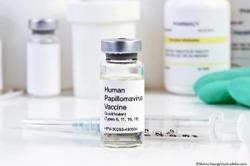© 2025 MJH Life Sciences™ , Patient Care Online – Primary Care News and Clinical Resources. All rights reserved.
Flu Vaccine Reduced Related Hospitalizations by About One-Third in Southern Hemisphere, but Uptake Still Low
Less than one-quarter of people infected with influenza-associated severe acute respiratory illness were vaccinated, according to a new report.
Vaccination reduced influenza-related hospitalizations by approximately one-third among high-risk groups in the southern hemisphere in 2024, according to new interim data published by the US CDC. However, researchers reported that influenza vaccine uptake was poor, remaining below pre-COVID-19 levels.
“This finding is consistent with postpandemic declines in vaccination coverage across the Americas associated with vaccine misinformation, hesitancy, and disruptions in routine immunization services, prevalent during the COVID-19 pandemic,” investigators wrote in the Morbidity and Mortality Weekly Report published October 3, 2024.
Between March 13 and July 19, 2024, which is considered peak influenza season in the southern hemisphere, there were 11 751 influenza-associated severe acute respiratory illness (SARI) cases reported in 5 South American countries: Argentina, Brazil, Chile, Paraguay and Uruguay. Overall, less than one-quarter (21.3%) of people infected with SARI were vaccinated and vaccination coverage varied across high-risk subgroups, including older adults (29.3%), young children, (19.4%), and patients with comorbidities (14.5%).
Despite the poor uptake, individuals who did receive influenza vaccination were at a significantly lower risk for serious illness. According to the new report, the adjusted vaccine effectiveness (VE) against any influenza-associated hospitalization was 34.5%, overall. The adjusted VE against any influenza-associated hospitalization was highest among individuals with comorbidities (58.7%), followed by young children (39.0%) and older adults (31.2%).
These findings support the current CDC and WHO recommendations encouraging all eligible individuals aged 6 months and older should receive influenza vaccination.
The VE against the predominating subtype A (H3N2) was 36.5% and 37.1% against A(H1N1)pdm09, researchers added.
“Although Southern Hemisphere influenza VE is not necessarily predictive of Northern Hemisphere VE, it can help the Northern Hemisphere plan contingencies for vaccination demand and use,” first author Erica E. Zeno, PhD, of the influenza division of the CDC’s National Center for Immunization and Respiratory Diseases, and colleagues wrote.
To estimate the VE against influenza-associated hospitalization in the 2024 southern hemisphere season, Zeno and coauthors used a test-negative case-control design, where case-patients were defined as individuals with SARI who tested positive for influenza via reverse transcription polymerase chain reaction (RT-PCR). Control patients were SARI patients who received negative RT-PCR test results for both influenza and SARS-CoV-2.
Patient data were pulled from the Pan American Health Organization (PAHO) Network for the Evaluation of Vaccine Effectiveness in Latin America and the Caribbean - influenza (REVELAC-i), which provides information on the vaccination status of hospitalized influenza patients and VE. Vaccination status was determined using unique patient identifiers linked to national electronic immunization records. Individuals who received the 2024 influenza vaccine at least 14 days before symptom onset were classified as vaccinated. Those who were vaccinated within 0–13 days before symptom onset were excluded from the evaluation.
For the purpose of the study, SARI was defined as an acute respiratory illness with either a history of fever or measured body temperature ≥100.4°F, cough, and onset ≤10 days before hospitalization, according to researchers.
Additional findings include:
- Vaccination status among case, control patients. Among the 3848 case-patients, 704 (18.3%) received a 2024 seasonal influenza vaccine compared with 1804 of 7903 (22.8%) of control patients (P < .001).
- Effectiveness by country. Adjusted VE against SARI from any influenza virus was highest in Uruguay (61.0%), followed by Chile (56.9%), Argentina (42.2%), and Brazil (30.3%). Researchers did not calculate VE for Paraguay due to insufficient data.
Because the US is using the same vaccine components that were in the southern hemisphere’s influenza vaccine, these new vaccine estimates could indicate how effective vaccination will be in the US if the same viruses (ie, H3N2) circulate, according to investigators.
Countries in the northern hemisphere, therefore, should “anticipate the need for robust influenza vaccination campaigns and early antiviral treatment to achieve optimal protection against influenza-associated complications,” Zeno et al stated.
Reference: Zeno EE, Nogareda F, Regan A, et al. Interim effectiveness estimates of 2024 southern hemisphere influenza vaccines in preventing influenza-associated hospitalization — REVELAC-i network, five south american countries, March–July 2024. MMWR Morb Mortal Wkly Rep. 2024;73(39):861-868.



